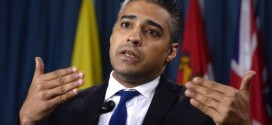
Sweden recognizes state of Palestine; move hailed by Palestinians, rejected by Israeli
On Thursday, Sweden became the first major European nation to officially recognize the state of Palestine, as Palestinians were quick to hail the “historic” move while the Israelis denounced the announcement.
“Today the government takes the decision to recognize the state of Palestine. It is an important step that confirms the Palestinians’ right to self-determination. We hope that this will show the way for others”, Swedish Foreign Minister Margot Wallstroem wrote in the daily Dagens Nyheter.
However, in the editorial, she stated that there will be some “who will maintain that today’s decision comes too early”.
“I’m afraid it comes too late. The government will now have to work with the other EU countries as well as the United States and other regional and international actors for the support of new negotiations”, she wrote.
At a press conference on Thursday, Wallstroem told reporters that Sweden is “not picking sides” and is simply “choosing the side of the peace process”.
She also announced that “the government considers that international law criteria for recognition of a Palestinian state have been fulfilled”.
Palestinian President Mahmoud Abbas hailed the decision as “brave and historic” and urged other countries to follow suit.
“All countries of the world that are still hesitant to recognize our right to an independent Palestinian state based on 1967 borders, with east Jerusalem as its capital, (should) follow Sweden’s lead”, Abbas’ spokesman quoted him saying.
On the other hand, Israeli Israeli Foreign Minister Avigdor Lieberman condemned the move, saying, “relations in the Middle East are a lot more complex than the self-assembly furniture of IKEA”.
“The decision of the Swedish government to recognize a Palestinian state is a deplorable decision which only strengthens extremist elements and Palestinian rejectionism”, Lieberman said in his statement.
The United has called the move “premature”, saying that the state of Palestine should be created only after direct Palestinian-Israeli negotiations.
EU spokesperson Maja Kocijancic stated the Union’s seemingly neutral stance on the move, saying, “The EU has in the past said it would recognize when appropriate, but this is in the competence of member states”.
 العربي الديمقراطي The Latest From The Arab World
العربي الديمقراطي The Latest From The Arab World




